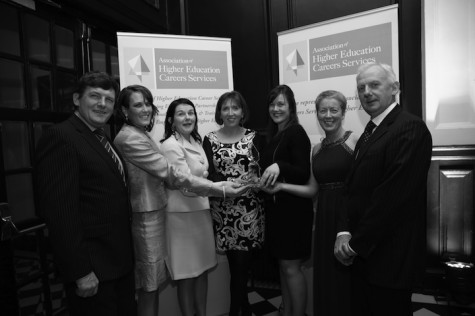Study abroad opens eyes in different, unexpected ways
I once had a professor tell our class, “I recommend every student go on a study abroad trip. It should be a mandatory rite of passage to graduate college. If you don’t have the money to do it, get a credit card and charge it. The interest will be worth it.”
I wouldn’t necessarily recommend racking up outstanding debt while in school to go on trips, but I do agree that it’s an opportunity that shouldn’t be missed. The experiences gained during a study abroad trip are thought provoking and can often be applied to other parts of a student’s studies.
A few years ago, I had an amazing travel opportunity. It was an opportunity that many people never will get or are not willing to take because of the final destination: Cambodia.
Cambodia is most commonly in the news (but rarely headlined) for social unrest, extreme poverty and standard of living issues. In the 70s, it was subjected to the Pol Pot Regime, a dictatorship headed by one man that wiped out nearly a third of Cambodia’s population and caused years of civil war.
The Pol Pot Regime has fallen, but Cambodia will likely never really recover and remain a developing country. It is widely known that third world countries are classified as such for many reasons, with the most dominant reasons being extremely high poverty rates, high birthrates with high infant mortality, economic and monetary dependence upon more advanced countries, lack of educational opportunities and a corrupted or non-existent government and military presence.
On my study abroad trip to Cambodia, I unfortunately witnessed all these hardships while living among the Cambodian people for three weeks.
It had always been my dream to take a study abroad class; I day-dreamed about going back to Paris to study art, or Spain to become fluent in Spanish, or maybe Italy to practice my photography.
Cambodia was never on my list of day-dream study destinations. The opportunity for this trip presented itself when I saw a flyer saying the class needed a few more students to go on the trip, which was hosted by the Rochester Community Technical College (RCTC) out of Minnesota.
The trip was part of a communications course, Speech 2100: Intercultural Communications. I desperately needed to fill my general education goal for a communications class, so it was the perfect opportunity since it happened over a winter break.
I realized staying in a hut in Cambodia wasn’t quite like a posh hotel in Europe, but I found myself excited to be pushed to explore a new part of the world.
I traveled with a group of students and teachers mostly from RCTC. My fellow study abroad student travelers were from diverse majors and therefore had different reasons they were interested on going on this trip. It was a good experience to meet other students and to be part of something in which we could actively participate and contribute our different skills and knowledge.
During the trip, our teacher had us discuss a question that was very thought provoking: “What do you think are cultural issues, and what do you think are universal issues that we have witnessed in Cambodia — and, what are some issues both universal and cultural we have witnessed?”
After visiting Cambodia, I now believe issues of the world are both cultural and universal. The degree of severity of the cultural issues is what distinguishes the lifestyle of those suffering when you compare one country to another.
When compared to the United States, it’s obvious that Cambodia has some similar issues, but at an intensely more severe degree. We both have homeless people living on the streets, prostitutes and drug addicts, murderers and rapists strolling about, and orphans without homes. The biggest difference is that the United States handles our issues better than Cambodia does; our government at least makes an effort to help; it offers orphanages/foster homes, soup kitchens and rehab facilities available to the public. Most facilities that fulfill these needs in Cambodia are privately owned, count on continuous donations (never from the Cambodian government) to keep running, and they just can’t keep up with the need for space within their establishment.
While exploring Cambodia north to south, east to west, we did many activities and educational field trips. One of the activities that stood out the most was a community outreach visit to a school that was founded by a French couple who visited the Phnom Penh garbage dump many years ago.
The garbage dump is where garbage from all Cambodia and sometimes garbage even imported from other countries is corralled into acre upon acre of mountainous trash. There are villages founded within the garbage dump with the villagers making their houses out of the trash.
Up until recently, the dump had been open to the public, but has now been closed to foreigners. Before the dump was closed to foreigners, a French couple visited it out of curiosity and were appalled at the conditions that human beings, especially children, were living in. Most of the trash pile inhabitants are children who were either orphaned, ran away from home due to abuse, or thrown out into the streets by their parents.
The French couple knew that the Cambodian government would never help these children and took it upon themselves to establish a safe haven for these homeless children. Through years of gaining sponsorships, donations from friends and other governments, they established a vocational school for children ages 0-16, called “Pour un Sourire d’ Enfant.”
My Cambodian experience provided me with a greater understanding of the hardships Cambodians have suffered and how these hardships contribute to their culture. It also made me realize that other third world countries’ issues can be closely compared to Cambodia.
When I left Cambodia, any cultural curiosity I had was temporarily diminished due to culture shock. But after recovering from my bewilderment, I am now able to value my experiences on this trip. I would highly recommend that at some point in time during their college career, every student should go on a study abroad trip.
UND offers study abroad opportunities in coordination with other schools to over 30 locations throughout the world. There is an office with advisors at UND who can assist students plan their trips and recommend locations that would be appropriate for the students’ learning and experience goals. Not only did the trip provide me with a more innovative way of thinking, it also made me much more appreciative for how I was raised and the quality of life we have here in America.
Traveling to any foreign country and immersing yourself in it will open your eyes to various ways of life and thinking, which in turn will foster understanding, tolerance and creativity.
Maggie Upton is a staff writer for The Dakota Student. She can be reached at [email protected].










